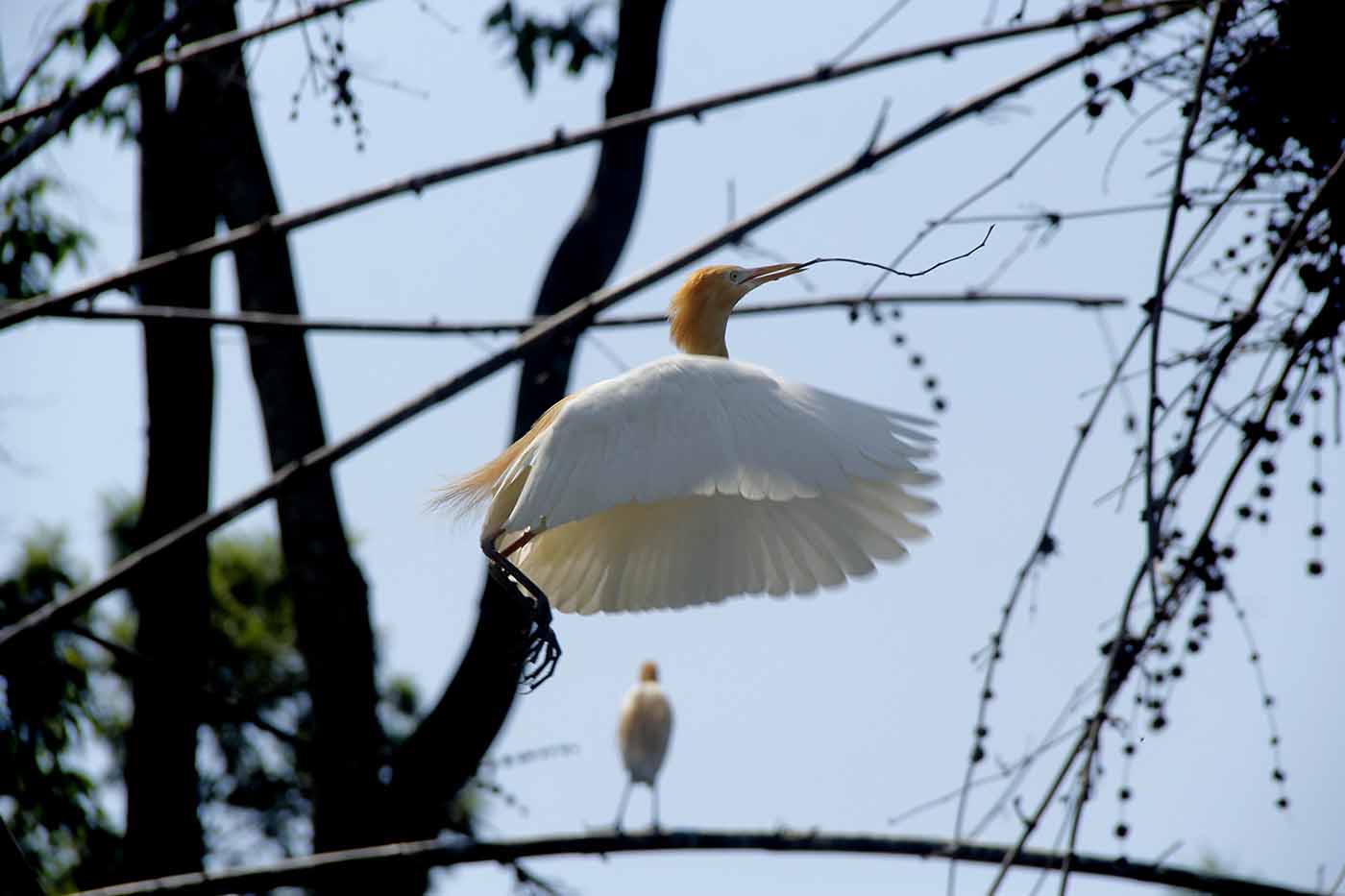Pokhara's royal egret sanctuary

After Nepal's monarchy was abolished in 2008, most of the property of the royal family was nationalised, and some of them like the Ratna Mandir in Pokhara have reverted back to nature.
Located at the edge of Phewa Lake, the property has become a sanctuary for a large flock of cattle egrets which now nest on bamboo groves in the abandoned garden.


The compound is named after Queen Mother Ratna, King Mahendra's wife, who is still alive and lives in a part of the former Naryanhiti Palace in Kathmandu.
Located at Pokhara's Lakeside and opposite the thick forested slope of Raniban on the other side of the lake, the neighbourhood has seen a resurgence of birdlife.
Kings, queens and their entourage do not visit anymore, the cattle egrets have made it their palace. And since the streets below leading to the boat hiring area are deserted now because of the lockdown, the egrets seem to find the location even more appealing.
Local birders say that although some egrets have always nested at Ratna Mandir, their numbers have risen dramatically in recent years because of urban expansion in Pokhara's lakeside and the proximity to the lake where the egrets like to fish.








And as the monsoon rains arrive, the cattle egrets have put on their tan plumage for the breeding season. They nest by the hundreds, on the upper branches with adult birds flicking back and forth bringing insets and small fish for the hatchlings, or twigs and leaves to maintain the nests.
The cattle egrets are breeding undisturbed because the bamboo forest is next to a Nepal Army sentry post, which means the soldiers are also guarding the birds.
While some birds fish, others fly further afield to pick insects off grazing water buffaloes and plough oxen, often riding on their shoulders.
The egrets also face natural disasters like thunderstorms and hail which break their eggs and kill the chicks. The mother egrets do not leave their nests, guarding their young through wind rain, or hail.




